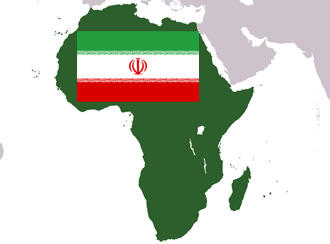Sunni vs. Shia` in the Political Future of the World
Mahdi Movahed-Abtahi
BASIR Institute
We may view to current events in the world especially among Muslim countries from another perspective: Sunni and Shiite thoughts endeavor –in the level of great policy makers- to partake more in the future government of the world, Does Sunni or Shiite school determine it? I try in this article to answer this question in three arguments:
- Shiite or Sunni thought are two distinct trends theorizing the worldwide government. It seems that is a competition among them to partake from the future of Islam and the world.
- My second argument examples Sunni`s political thought as ‘an ebullition before keeping silence’ and describes Shiite political thought as ‘a trend for legitimating the future world government.
Radical Sunni streams such as Taliban, Al-Qaeda, Daish, excommunicating or Takfiri groups and etc are featuring and reproducing primitivism (Arab period before Islam) again. They envy from rational development of mankind and are burnt in their jealousy and rancour and looking for proper time to express out it, Does Allah not expulsion their enmities? (The Quran; chapter 47: verse 19). Current Shiite governments or groups attempt to legitimate ourselves for participating in the future world government. Even, Iran claims that is modelling it. Mahdism –and then the claim of expectancy for appearance of the promised- is the key element of such thought. In the next argument, I must explore its roots.
- Based on genealogy of Islamic thoughts, I abstract two followings as the key elements for expecting preparation and participation in the future world government: a) the truth of Islam prophet`s vicar, b) the nature of expecting promised government. Different approach to the vicar rose from different genealogy of Sunni and Shiite thoughts. Sunni thought ignores that Ali-bin-Abi Talib (the prophet`s cosine) is his vicar while Shiite thought believes that he is appointed by Allah and the prophet. In the other word, following ignorance of Ali-bin-Abi Talib basically distinct them. Based on many verses of the Quran and some historical evidences, the distinction not only presented after the prophet death but also originated from the prophet`s life period.
Now, I renew the principle question: whose did legitimately the prophet vicars?
Rationally and for better knowing both thought`s role in the future world government, we must re-know Imam Ali again.
Sunni thought has no key elements such as ‘Imam Husain’s revolution’ and ‘expecting the promised’ and then, does not eligible to introduce model of the future world government except that to help from its expired thoughts of their predecessors (salaf) such as the triple Caliphs, Umayyad and Abbasid governors, Salahuddin Ayubi, Turkish Ottoman and so one. Currently, Sunni radicals are manifesting such unlucky attempts; Taliban and Al-Qaeda in Afghanistan, Daish in Iraq and Syria, Al-Qaeda in Asia and North African, Boko Haram in central African.
Shiite thought believe that; a) Islam is the last version of divine religions connecting to the revelation and therefore, saving its eligibility through revelation to the prophet and to his eligible vicegerents, b) Imam Husain`s revolution survived Islam, c) Islam proposed the future world government, that 4) named as ‘the promised worldwide government’ in which, the 12th eligible prophet`s vicegerents (now is hidden) will establish it.
Irrespective of believing Shiite thought or rejecting it, it`s important to know how answer the following questions:
- How thoughts or diplomacy do approach to Imam Mahdi`s worldwide government? Do they see as a treat? May they participate in it? How does it change to an opportunity?
- What is the best: survive ourselves for that period? Or survive ourselves by expectant it?
- What does mean expecting the promised worldwide government?
- How has Imam Husain`s revolution play role in surviving Islam and Shiite thought?
Continues. . . . .





